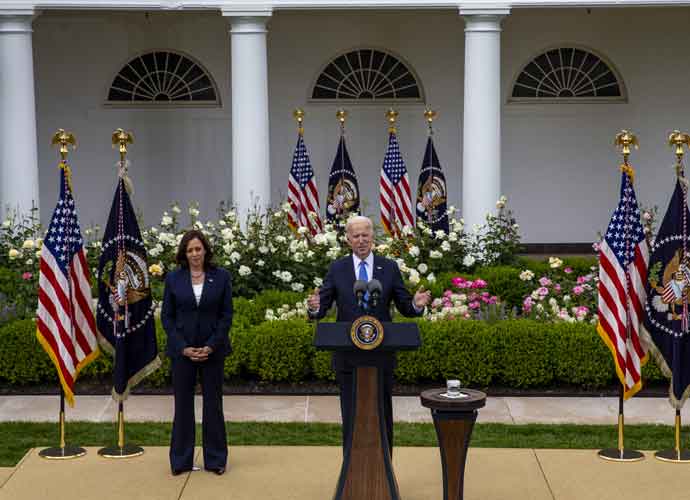White House Physician Clarifies Frequent Visits By Parkinson’s Specialist
On Monday night, President Joe Biden‘s doctor, Kevin O’Connor, released a letter explaining why a Parkinson’s disease specialist had visited the White House frequently over the past eight months. This clarification came shortly after reporters questioned Biden’s fitness for office in a briefing room exchange with the president’s press secretary.
In recent days, multiple news outlets have reported on a neurologist’s visits to the White House, including meetings with Dr. O’Connor.
On Monday, the New York Times reported that visitor logs revealed the specialist had visited the White House eight times in the past eight months.
In a Monday briefing, when asked if the neurologist’s visits were related to the president’s health, White House press secretary Karine Jean-Pierre clarified that Biden had only seen him three times for annual physicals.
Subscribe to our free weekly newsletter!
A week of political news in your in-box.
We find the news you need to know, so you don't have to.
Jean-Pierre stated that the White House Medical Unit cares for many individuals within the complex. She declined to detail the reasons for the specialist’s other visits and repeatedly refused to confirm the specialist’s name for privacy reasons.
Following Monday’s exchange, which drew headlines over Jean-Pierre‘s reluctance to answer questions about the doctor’s visits, O’Connor received permission from both Biden and the specialist to publicly disclose the doctor’s name, an unusual move for the White House.
In his letter, O’Connor explained that the neurologist, Kevin Cannard, had been a consultant for the White House medical office since 2012.
The letter stated that Cannard, a Parkinson’s expert, conducts neurology clinics at the White House for active-duty military members and had examined Biden for his three annual physicals since taking office.
“Seeing patients at the White House is something that Dr. Cannard has been doing for a dozen years,” O’Connor stated.
“Dr. Cannard was chosen for his responsibility not because he is a movement disorder specialist, but because he is a highly trained and highly regarded neurologist here at Walter Reed and across the Military Health System, with a very wide expertise which makes him flexible to see a variety of patients and problems,” the letter said.
O’Connor reiterated that the president had only seen the neurologist during his physicals. Biden’s most recent examination in February found no evidence of “any cerebellar or other central neurological disorder, such as stroke, multiple sclerosis, Parkinson’s or ascending lateral sclerosis, nor are there any signs of cervical myelopathy.”
The letter aligns with Biden’s campaign efforts to reassure Democratic party members that he is capable of running for reelection, especially after his lackluster debate performance last month.
Calls for Biden to withdraw from his reelection bid have increased since the debate with former President Donald Trump, during which Biden struggled to articulate his message and form coherent sentences at times.
While the White House has dismissed the performance as a one-time event, attributing it to a bad night, many Democrats have publicly questioned Biden’s ability to serve another term.
However, despite these concerns, Biden has pledged to remain at the top of the Democratic ticket.
In an interview with ABC News on Friday, Biden rejected the suggestion of undergoing an independent medical evaluation, including neurological and cognitive tests, to demonstrate his fitness for another term.
“I have a cognitive test every single day. Not only am I campaigning, but I’m running the world,” said Biden.
Get the most-revealing celebrity conversations with the uInterview podcast!







Leave a comment